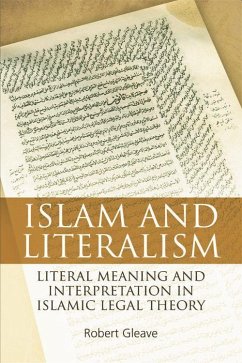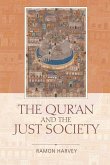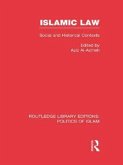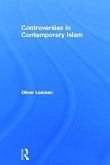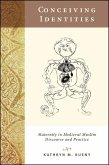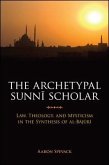One of the characteristics of the 'conservative religious revival' movements in Judaism, Christianity and Islam is the commitment to a scriptural text as the sole source of knowledge, and an insistence on the literal interpretation of this text. However little has been to done to investigate this phenomenon of interpretation which proposes the literal meaning as the only acceptable one. This book fills this gap with respect to Islam, looking both at literal meaning and literalism. The focus is on the tradition of Muslim legal writings: in this literature there exists a complex procedure of how to identify the literal meaning and the role it has in interpreting texts. The author also makes reference to Quranic exegesis (tafsir) and Arabic rhetorical works, since many of the ideas of legal hermeneutics were derived from these cognate traditions of learning. The overall aim is to take an important modern phenomenon (Muslim commitment to the literal meaning of the revelatory texts) and place it in an historical context. The Muslim debates analysed in the book are described through the prism of modern Western linguistic philosophy, and a chronology of the development of Muslim conceptions of literal meaning structures the book.
Traces the emergence and development of the idea of literal meaning in Islamic legal hermeneutics The idea of literal meaning - the meaning a text or statement has, regardless of what its author intends to convey or its audience understands to be its message - is here used as an analytical tool to inform a reading of Islamic legal hermeneutics with the insights of modern semantic and pragmatic philosophers. Author Robert Gleave argues that there have been various competing notions of literal meaning, linked to both theological doctrine and historical context. The inherent meaning of the text has become an element in discussions about who has the authority to interpret the revelatory texts, and what are the legitimate procedures for identifying what this literal meaning might be. Answers to these questions have evolved over time, and an attraction to the idea of a text's literal meaning which rules over all fallible human attempts to understand God's message has intensified among modern Muslim legal theorists. This attraction has resulted in intertwined debates concerning the processing and priority of legal meaning - and the importance of defining, identifying and promulgating the literal meaning of the central texts of the Muslim tradition shows little sign of diminishing. Robert Gleave is Professor of Arabic Studies at the University of Exeter. Jacket image: Student annotated copy of the 1858 lithograph of Mirza Abu al-Qasim al-Qummi's Qawanin al-Usul Jacket design: [insert logo file] www.euppublishing.com ISBN 978-0-7486-2570-3 [please add in the white area above the barcode] Barcode [insert logo file] www.euppublishing.com ISBN 978-0-7486-2570-3 [please add in the white area above the barcode] Barcode
Hinweis: Dieser Artikel kann nur an eine deutsche Lieferadresse ausgeliefert werden.
Traces the emergence and development of the idea of literal meaning in Islamic legal hermeneutics The idea of literal meaning - the meaning a text or statement has, regardless of what its author intends to convey or its audience understands to be its message - is here used as an analytical tool to inform a reading of Islamic legal hermeneutics with the insights of modern semantic and pragmatic philosophers. Author Robert Gleave argues that there have been various competing notions of literal meaning, linked to both theological doctrine and historical context. The inherent meaning of the text has become an element in discussions about who has the authority to interpret the revelatory texts, and what are the legitimate procedures for identifying what this literal meaning might be. Answers to these questions have evolved over time, and an attraction to the idea of a text's literal meaning which rules over all fallible human attempts to understand God's message has intensified among modern Muslim legal theorists. This attraction has resulted in intertwined debates concerning the processing and priority of legal meaning - and the importance of defining, identifying and promulgating the literal meaning of the central texts of the Muslim tradition shows little sign of diminishing. Robert Gleave is Professor of Arabic Studies at the University of Exeter. Jacket image: Student annotated copy of the 1858 lithograph of Mirza Abu al-Qasim al-Qummi's Qawanin al-Usul Jacket design: [insert logo file] www.euppublishing.com ISBN 978-0-7486-2570-3 [please add in the white area above the barcode] Barcode [insert logo file] www.euppublishing.com ISBN 978-0-7486-2570-3 [please add in the white area above the barcode] Barcode
Hinweis: Dieser Artikel kann nur an eine deutsche Lieferadresse ausgeliefert werden.

